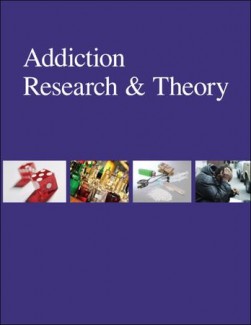Trajectories of psychological distress during recovery from polysubstance use disorder

Abstract
Introduction: Polysubstance use is a prevalent substance use pattern with adverse effects on psychological distress and diminished treatment outcomes. Although polysubstance use often dominates clinical practice, the trajectories of substance use and psychological distress in the initial phase of treatment have been subject to few empirical investigations.
Material and Methods: 141 patients initiating inpatient or outpatient treatment for substance use disorder were followed for 12 months, using multiple assessments. We assessed psychological distress and substance use at baseline and at 3-, 6-, and 12-month follow-up visits. We implemented an SMS tracker of substance use during follow-up to reduce the impact of missing data.
Results: Stable abstinence was associated with a lower baseline SCL-90-R score, as well as a more rapid symptomatic decline during the first 3 months of abstinence. Unstable abstinence was associated with higher GSI scores at baseline, but also with a significant drop in scores across the follow-up period. Relapse was associated with an initial drop in GSI scores, but a subsequent increase in GSI scores at later follow-ups.
Conclusions: Most participants had a rapid reduction of psychological distress during the first 3 months of abstinence. Elevated levels of psychological distress may indicate an increased risk of drug use or relapse and should be monitored carefully. Our findings highlight the importance of early screening for psychological distress in SUD treatment, and advocate the use of tentative diagnostic procedures in the early phase of treatment of PSUD.
Keywords: Polysubstance abuse, psychological distress, addiction, substance use disorder, Treatment, Recovery, SCL-90-R
